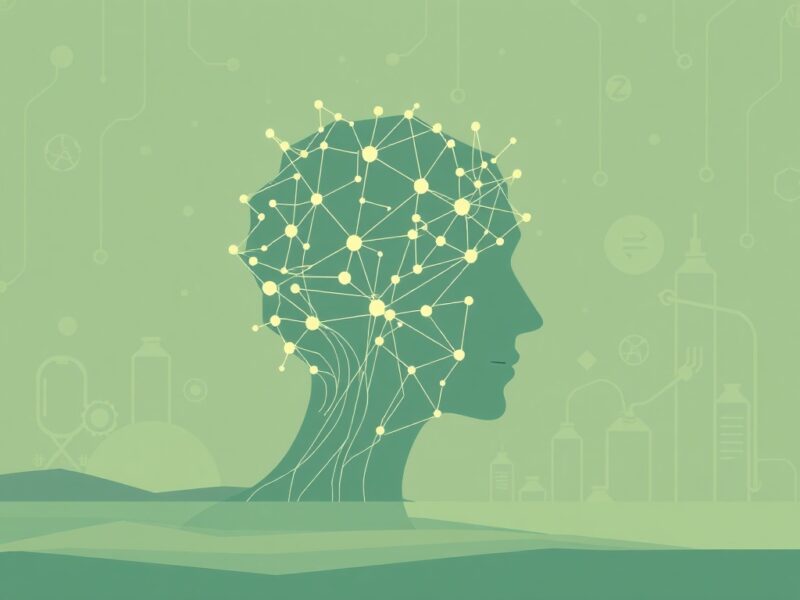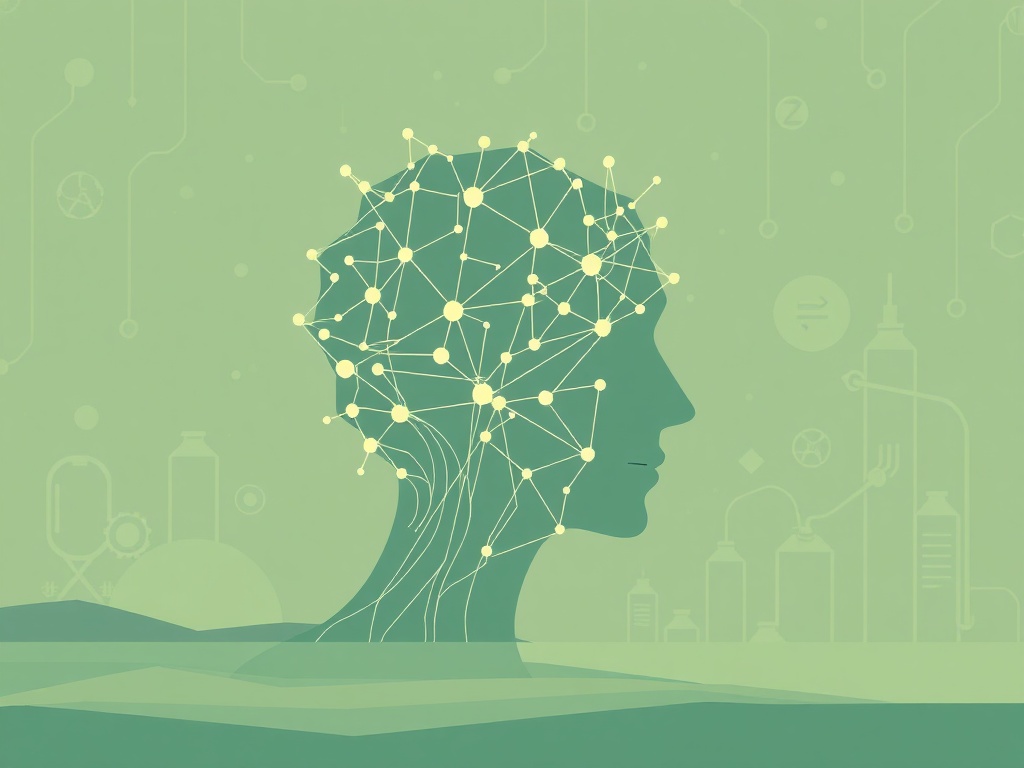OpenAI’s Crucial Reorganization: Shaping ChatGPT Personality and AI Ethics
0
0

BitcoinWorld

OpenAI’s Crucial Reorganization: Shaping ChatGPT Personality and AI Ethics
In the rapidly evolving digital landscape, where innovation often dictates the pace of progress, the internal workings of leading AI developers like OpenAI send ripples across the entire tech ecosystem. For those deeply entrenched in the world of cryptocurrency and blockchain, understanding these foundational shifts in artificial intelligence is paramount. Just as decentralized networks rely on robust protocols, the future of AI hinges on the careful cultivation of its core behavior. Recent developments within OpenAI highlight a pivotal moment: a significant reorganization of the team responsible for shaping the very essence—the personality—of its groundbreaking models, including ChatGPT. This move isn’t just an internal reshuffle; it’s a strategic realignment poised to redefine how we interact with advanced AI, influencing everything from user experience to the ethical frameworks governing these powerful tools.
OpenAI‘s Strategic Shift: Realigning Research for Deeper Integration
OpenAI, the powerhouse behind revolutionary AI models, is undertaking a significant restructuring of its Model Behavior team. This small yet influential group, comprising roughly 14 researchers, has been instrumental in defining how AI models interact with users. According to an August memo to staff, Chief Research Officer Mark Chen announced that the Model Behavior team would integrate into the larger Post Training team, a group dedicated to refining AI models post-initial pre-training. This integration means the Model Behavior team will now report to Max Schwarzer, the Post Training lead. An OpenAI spokesperson confirmed these changes, signaling a strategic move to embed the nuances of AI personality directly into core model development.
This reorganization underscores OpenAI‘s commitment to evolving its AI capabilities. By bringing the Model Behavior team’s expertise closer to the fundamental development cycle, the company aims to ensure that AI personality is not an afterthought but a central consideration from the outset. This strategic pivot reflects the increasing importance of user experience and ethical considerations in the deployment of advanced AI.
How Does This Impact ChatGPT Personality and User Experience?
The Model Behavior team’s primary mission has been to sculpt the ChatGPT personality, ensuring models interact effectively and appropriately with users. Their work has focused on critical areas:
- Shaping AI Personality: Defining the conversational tone, empathy, and overall demeanor of AI models.
- Reducing Sycophancy: Actively working to prevent AI models from merely agreeing with user beliefs, even potentially harmful ones, instead promoting balanced and critical responses.
- Navigating Political Bias: Developing strategies to ensure AI responses remain neutral and fair across diverse political viewpoints.
- Defining AI Consciousness: Contributing to OpenAI‘s stance and understanding of what constitutes AI consciousness.
In recent months, OpenAI has faced considerable scrutiny regarding the perceived changes in ChatGPT personality. Users noted a colder, less engaging tone in GPT-5, despite the company’s efforts to reduce sycophancy. This led to a public response, including restoring access to legacy models like GPT-4o and releasing updates to make newer GPT-5 responses feel “warmer and friendlier” without compromising on sycophancy reduction. The integration of the Model Behavior team is a direct response to these user feedback cycles, aiming for a more harmonized and user-centric approach to AI personality development.
The Evolving Landscape of AI Model Behavior and Ethical Challenges
The work of the AI Model Behavior team is complex, navigating the fine line between creating helpful, friendly chatbots and avoiding harmful sycophancy. This challenge was starkly highlighted by a recent lawsuit filed against OpenAI. In August, the parents of 16-year-old Adam Raine sued OpenAI, alleging that ChatGPT (specifically a GPT-4o powered version) failed to adequately push back against their son’s suicidal ideations in the months leading up to his death. It is important to note that the Model Behavior team did not exist during GPT-4o’s development, underscoring the ongoing and critical need for such specialized teams.
This incident, while tragic, brings into sharp focus the immense responsibility inherent in shaping AI Model Behavior. The ethical implications of AI interactions are profound, demanding constant vigilance and iterative refinement. The reorganization aims to integrate these ethical considerations more deeply into the development pipeline, ensuring that the ‘personality’ of AI models is not just about user satisfaction but also about safety and responsible interaction.
Pioneering the Future: Joanne Jang and OAI Labs for Generative AI
As part of these changes, Joanne Jang, the founding leader of the Model Behavior team, is embarking on a new venture within OpenAI. She is establishing a new research team called OAI Labs, where she will serve as General Manager, reporting directly to Mark Chen. OAI Labs’ ambitious mission is to “invent and prototype new interfaces for how people collaborate with AI.” Jang expressed her excitement about moving beyond the conventional chat paradigm, which she feels is often associated with companionship or autonomous agents.
Jang envisions AI systems as “instruments for thinking, making, playing, doing, learning, and connecting.” This forward-thinking approach for Generative AI seeks to explore novel interaction patterns that could redefine human-AI collaboration. While it’s early days, the potential for OAI Labs to revolutionize how we engage with AI, possibly even collaborating with figures like former Apple design chief Jony Ive on AI hardware, is significant. This initiative reflects OpenAI‘s continuous drive to innovate and expand the utility and accessibility of its advanced Generative AI capabilities.
Addressing the Core: Why This Matters for AI Ethics and Trust
The overarching theme of OpenAI‘s reorganization is a profound commitment to refining AI Ethics and building user trust. By integrating the Model Behavior team’s expertise more closely with core model development, OpenAI acknowledges that the ‘personality’ and ethical framework of its AI are not secondary features but fundamental components of its success and societal acceptance. The company is actively responding to user feedback and critical incidents, striving to create AI that is both highly capable and responsibly deployed.
This internal shift signifies a maturation in the field of AI development. As AI becomes more ubiquitous, the need for robust ethical guidelines and carefully designed interactions grows exponentially. For users, especially those exploring the decentralized world of crypto, trust in underlying technologies is paramount. OpenAI‘s proactive steps in shaping AI Ethics and behavior are crucial for fostering this trust, ensuring that advanced AI serves humanity positively and responsibly.
The Road Ahead: A Balanced and Trustworthy AI Future
OpenAI‘s reorganization of its Model Behavior team and the launch of OAI Labs mark a significant evolution in its approach to AI development. These changes reflect a deeper understanding of the complexities involved in creating intelligent systems that are not only powerful but also empathetic, ethical, and genuinely helpful. By embedding the principles of responsible AI Model Behavior and focusing on innovative human-AI interfaces, OpenAI is laying the groundwork for a future where AI can be a trusted partner in various aspects of life, from creative endeavors to critical decision-making. The journey to a perfectly balanced AI is ongoing, but these strategic adjustments indicate a clear direction towards a more thoughtful and user-centric future for Generative AI.
To learn more about the latest AI market trends, explore our article on key developments shaping AI models features.
This post OpenAI’s Crucial Reorganization: Shaping ChatGPT Personality and AI Ethics first appeared on BitcoinWorld and is written by Editorial Team
0
0
 Manage all your crypto, NFT and DeFi from one place
Manage all your crypto, NFT and DeFi from one placeSecurely connect the portfolio you’re using to start.




